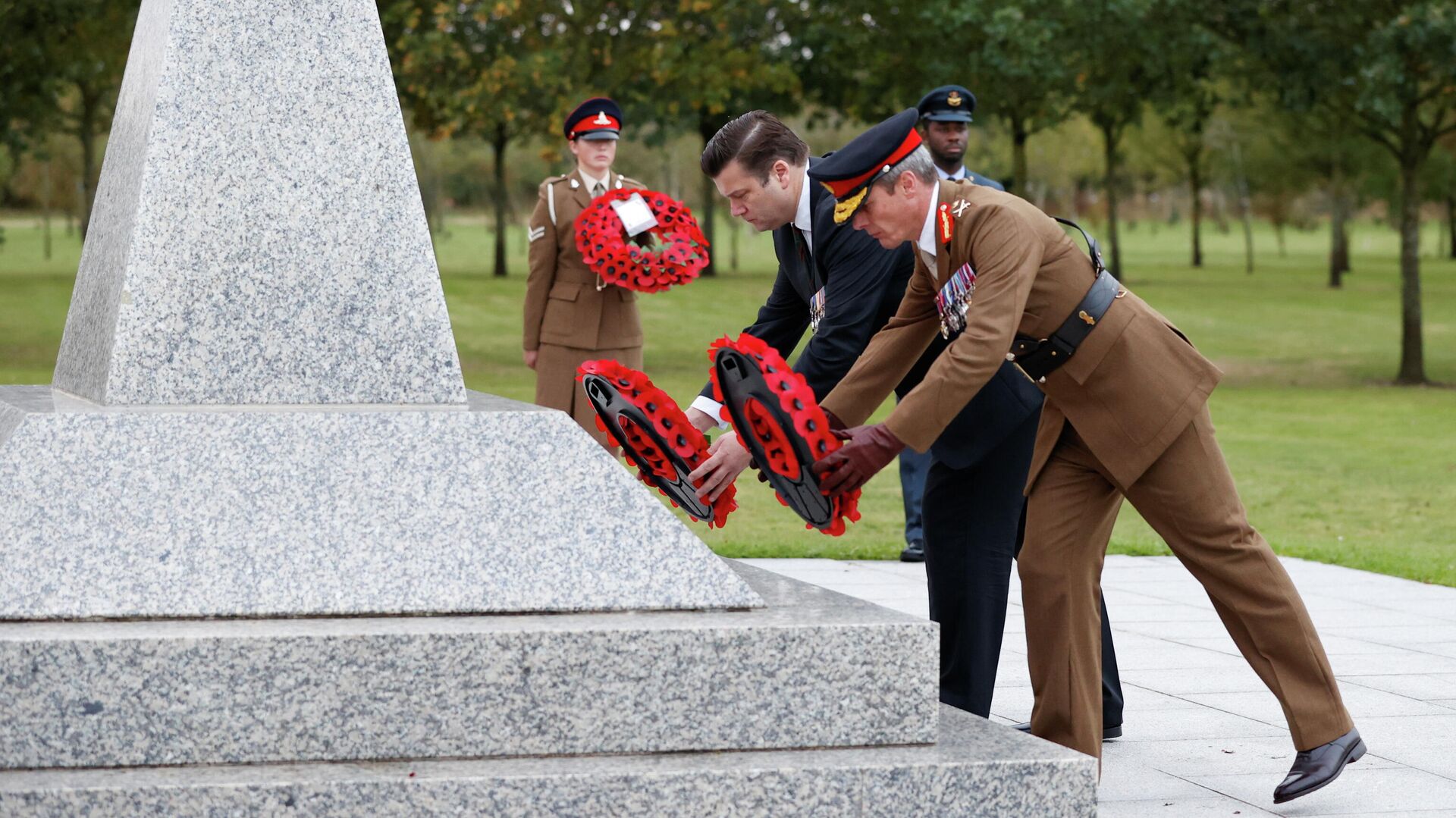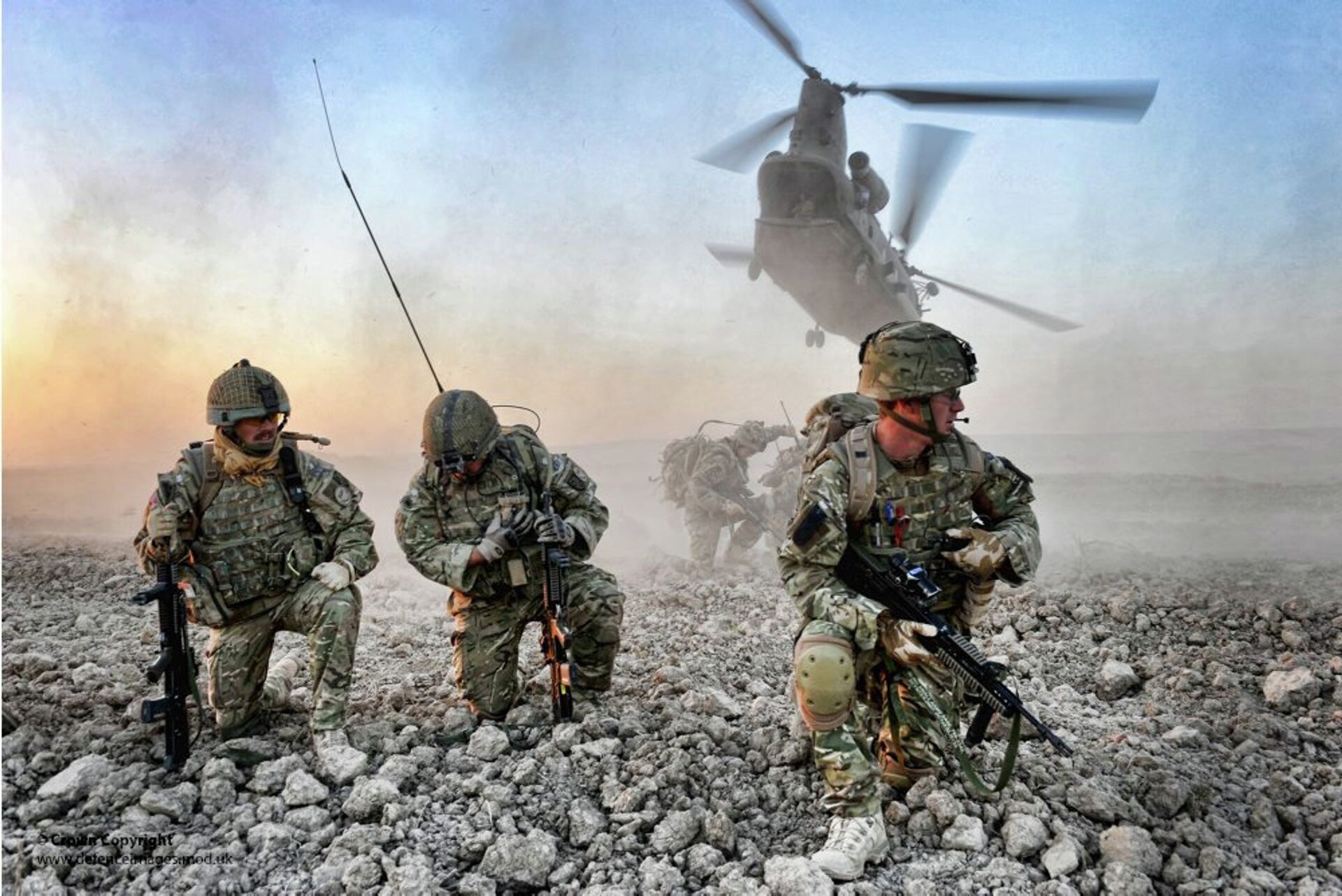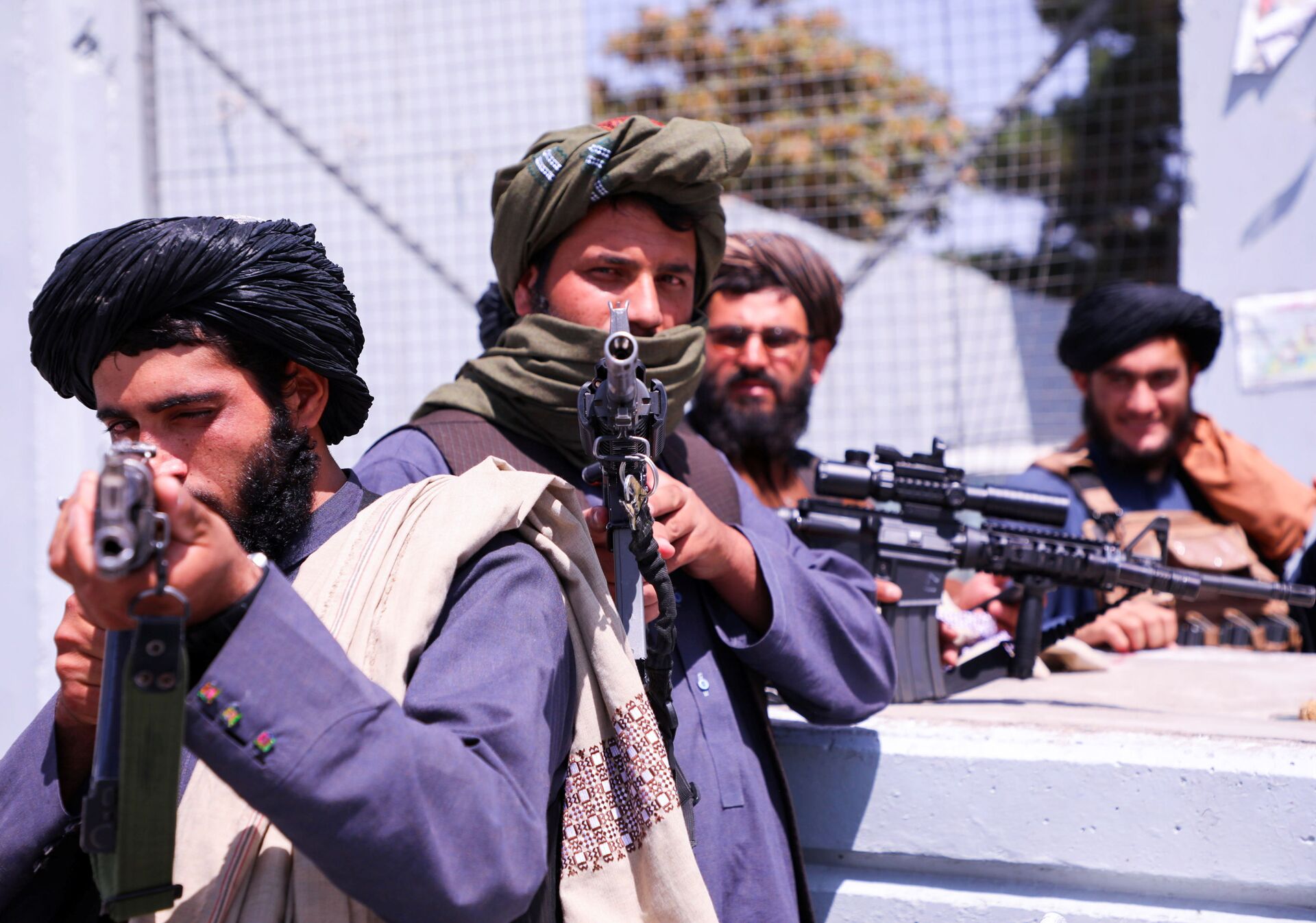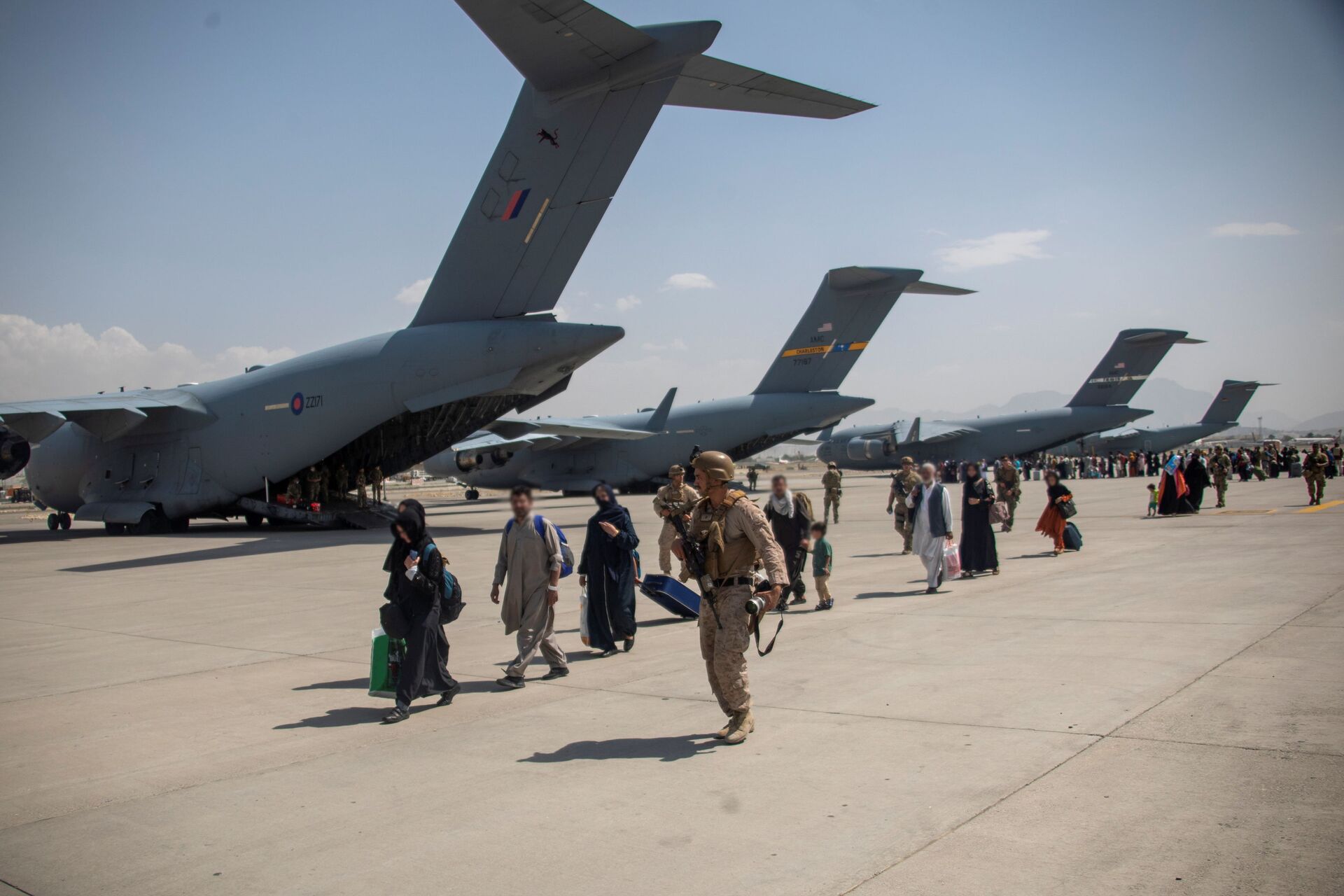Memorial Services in UK Honour 457 Killed in Afghanistan on 20th Anniversary of Military Operation
10:41 GMT 07.10.2021 (Updated: 15:16 GMT 28.05.2023)

© REUTERS / PHIL NOBLE
Subscribe
On 7 October 2001, the UK joined the American-led coalition’s military intervention in Afghanistan in response to the 11 September terror attacks in the US. Two decades and 457 lost lives later, Britain pulled out its remaining troops and diplomatic staff from the country amid a barrage of criticism over its handling of the operation.
Memorial services have been held in the UK to mark the 20th anniversary since the start of the country’s military operations in Afghanistan. Wreaths were laid in memory of the 457 service personnel who died in the conflict.
Services have been held to mark the 20th anniversary of the start of UK military operations in Afghanistan.
— ITV News (@itvnews) October 7, 2021
Wreaths have been laid at the National Memorial Arboretum, Staffordshire, in memory of the 457 British personnel killed during the conflicthttps://t.co/hv9mXmhBKA pic.twitter.com/Of5x9J1mc9
A service was held at 7.30 a.m. at the Camp Bastion Memorial at the National Memorial Arboretum in Staffordshire, to honour "the courage and commitment of its people" during the two decades of conflict. The memorial design echoes that of the former Bastion Memorial Wall in Camp Bastion, Helmand Province, Afghanistan.
Another service was held at the Iraq and Afghanistan Memorial in central London, near the Ministry of Defence, honouring the UK troops and civilians who served in the Gulf region, Iraq and Afghanistan.

Soldiers from 7 Para Royal Horse Artillery Establish Comms by Radio Following Insertion by Chinook Helicopter in Afghanistan
© Flickr / UK Ministry of Defence
The United States-led military offensive 'Operation Enduring Freedom', was launched by former US president George W. Bush in pursuit of terrorists from al-Qaeda* - including leader Osama Bin Laden - for masterminding the 11 September 2001 attacks in the US.
While failing to capture Bin Laden, who was reportedly killed in a US special forces raid in Pakistan nearly a decade later, American-led forces overthrew the Kabul-based Taliban government, which had been in control of large parts of the country since 1996. In April 2021, US President Joe Biden ordered the full withdrawal of US troops from the country, in line with an earlier agreement struck between his predecessor, Donald Trump and the Taliban.

Taliban forces stand guard in front of Hamid Karzai International Airport in Kabul
© REUTERS / STRINGER
The hasty pullout resulted in the Taliban* Islamist group swiftly seizing the Afghan capital of Kabul in mid-August. The end of the Western military presence also concluded a massive airborne evacuation effort from Kabul, as vulnerable Afghans sought to escape the Taliban, fearing retribution for having worked for or served with the foreign forces. Since mid-August, the UK said it had evacuated over 15,000 people, including British nationals, Afghan interpreters, and other vulnerable people from Afghanistan.

Members of the UK Armed Forces continue to take part in the evacuation of entitled personnel from Kabul airport, in Kabul, Afghanistan August 19-22, 2021, in this handout picture obtained by Reuters on August 23, 2021. LPhot Ben Shread/UK MOD Crown copyright 2021/Handout via REUTERS THIS IMAGE HAS BEEN SUPPLIED BY A THIRD PARTY. MANDATORY CREDIT. NO RESALES. NO ARCHIVES.
© REUTERS / Ben Shread/UK MOD Crown copyright 2021/Handout
The UK pulled out its remaining troops and diplomatic personnel from Afghanistan on 28 August, and US forces finally withdrew three days later, a day ahead of the 31 August deadline set by Biden. Meanwhile, with the last remaining stronghold of resistance to Taliban in Panjshir falling in early September, the movement declared an interim government, headed by Mohammad Hasan Akhund, who had served as the Afghan foreign minister during the previous Taliban rule.
‘Mission Unlike Anything’
Prime Minister Boris Johnson, who together with then- Foreign Secretary Dominic Raab faced a barrage of criticism over the UK's response to the Taliban takeover, extolled the UK's departure as "the culmination of a mission unlike anything we've seen in our lifetimes".
Will Biden do the same to American troops 🇺🇸~ ~ @BorisJohnson pays tribute to 'heroic' British troops 🇬🇧 pic.twitter.com/jGibYZGyub
— SgtPepper1964 (@SPepper1964) August 29, 2021
A government spokesman was cited as saying that despite the success of that operation “exceeding assumptions”, many had been left in difficult circumstances. The British government's "utmost priority is to continue to work with allies and partners in the region to ensure safe passage for those who want to leave Afghanistan," said the spokesperson.
'We always knew that somewhere we would fall just short.'
— GB News (@GBNEWS) August 29, 2021
Vice Admiral Ben Key, who commands Operation Pitting, says the arrival of the last UK military and diplomatic personnel from Afghanistan 'isn’t a moment of celebration'. pic.twitter.com/3T8CKZaBzN
Lord Dannatt, who was head of armed forces between 2006 and 2009, said on BBC Breakfast that the withdrawal had marked the end of a military chapter that “ended not in the way we would have wished". He said there should be an inquiry into the UK's 20-year engagement in Afghanistan to probe the "string of strategic errors", including the manner of the evacuation.
*A terrorist group outlawed in Russia and many other countries.


